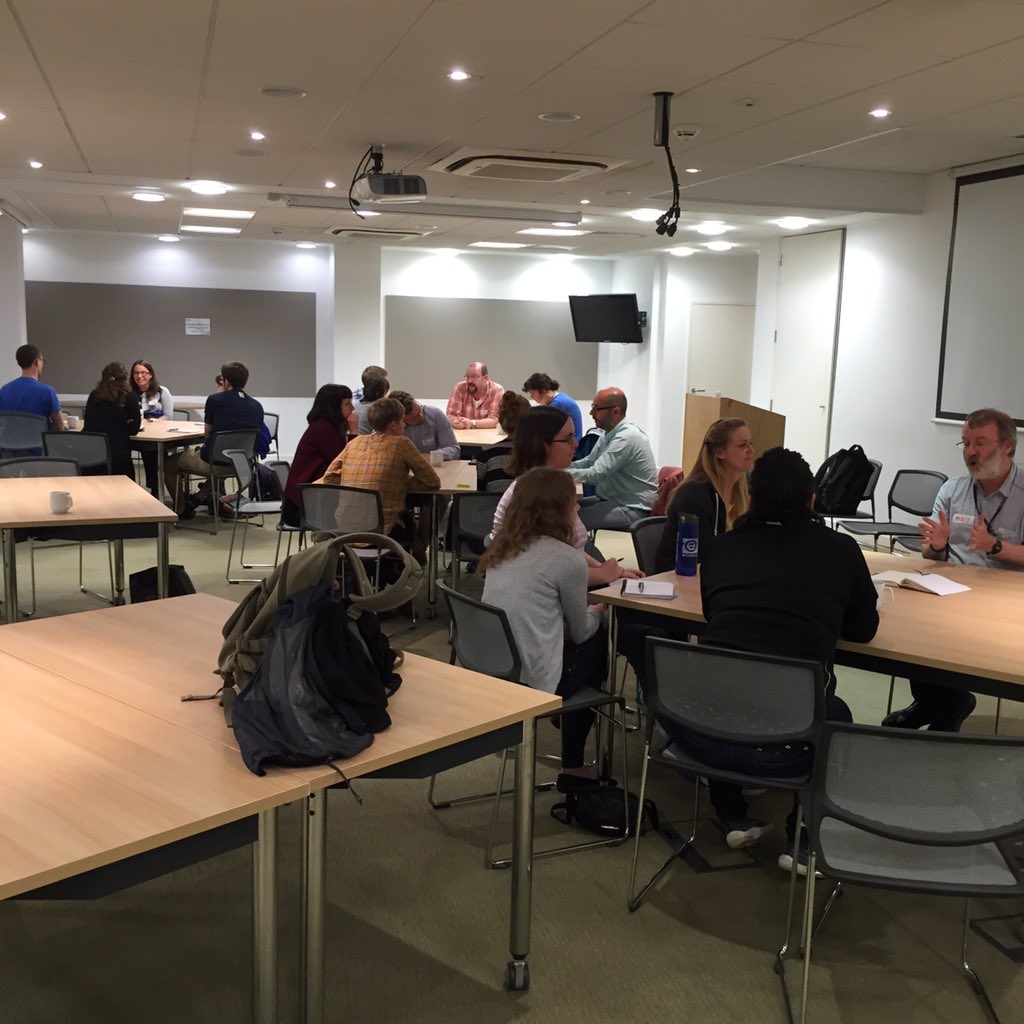BES Macroecology ECR mentoring event
 In September the British Ecological Society Macroecology SIG ran an early career researcher (ECR) mentoring workshop at Charles Darwin House.
We had four expert mentors (Prof. Yvonne Buckley, Prof. Rob Freckleton, Dr Rich Grenyer and Prof.
Andy Purvis plus me facilitating) and had small group discussions on a range of topics including applying for postdocs, CV writing, fellowship applications, mental health and work-life balance.
At the end of the meeting we asked the mentors for their top pieces of advice for ECRs.
We also asked the attendees what they would take away from the day.
In September the British Ecological Society Macroecology SIG ran an early career researcher (ECR) mentoring workshop at Charles Darwin House.
We had four expert mentors (Prof. Yvonne Buckley, Prof. Rob Freckleton, Dr Rich Grenyer and Prof.
Andy Purvis plus me facilitating) and had small group discussions on a range of topics including applying for postdocs, CV writing, fellowship applications, mental health and work-life balance.
At the end of the meeting we asked the mentors for their top pieces of advice for ECRs.
We also asked the attendees what they would take away from the day.
Top tips for ECRs
-
Decide what you want out of life, and manipulate your life/work to get it. What do you want out of life? Think about work and the other things you might want. Do you want to maintain a 9-5 working day? Do you want to keep your weekends free? Do you want time for your hobbies? Once you know what you want, work out how to make your career sustainable so you’re happy/content (or at least not too upset!) in 10 years time. Manipulate your life/work to make it give you what you want. Will a postdoc do that? Or would freelancing be better? Yvonne Buckley
-
Step back and appreciate the scale of what you can do. When you are near the end of your PhD or first postdoc, take a step back and imagine that you’ve just bumped into a schoolmate you haven’t seen in 10 years. How would you describe what you do to them? Not the research project part, but the day-to-day workings of your job. You’ll discover that you come up with a list of really high profile skills - managing time and people, convincing funding bodies to fund you, creative problem solving etc. It’s useful to remember that you have developed all of these skills that you can use in academia and beoynd. Rich Grenyer
-
Plan ahead. Not everyone makes the transistion they want to. Some people don’t make it from PhD to postdoc, others never get a fellowship or faculty job. There is chance involved, but planning ahead is really important. Decide what you need to do to make the next step, e.g. do you need more first author papers, or a grant? Then make the plans to get where you need to be in plenty of time. You need to recognise this at the right time, if it’s just before a transition point it’s probably too late. Take advice all the way along the process, and find out how to gain appropriate experience to get where you want to be. Also remember to make a plan for your papers. Plan to add a tools/review/position piece paper when you’re likely to have a project where the papers take a long time to come. Rob Freckleton
-
Take responsibility for your own training. Don’t rely on your supervisor to tell you what training you need, find out what your gaps are and tell them what you need training in and how they can help. Take all the opportunities you can so you are competitive when the right job comes along. Andy Purvis
-
Get a mentor, or several. Mentors are really important, and really helpful whether you want to stay in academia or move to a different career. Find people you can talk to and who have experience that can help you, and ask if they will be your mentor. People may say no if they are busy, but no-one will mind you asking. Having a mentor outside of your lab is a great way to get different opinions on things, and allows you to share things that you might not want to discuss with your supervisor. It doesn’t need to be formal - just a cup of tea and a chat every couple of months. Mentors can also act as references for jobs and recommend you for things that will help build your CV. Natalie Cooper
-
Don’t wait for academia to become fun. I love my job, it’s a brilliantly awarding career (with immense amounts of frustration too) as long as you make sure to take care of yourself (as Yvonne said in an earlier session “Put on your own oxygen mask first and then you’ll be able to help others”). Don’t think you can slog through three years of a PhD and then it will be fun. Make sure you are having fun now and fun is built in to what you do. It’s not a sustainable career if you don’t do this. Andy Purvis
Attendees comments
-
It’s important to have plans and dreams for the future - what do you want out of your life and job - and then think about what you need to do to get there. Suzanna Mason (CEH)
-
Information on compiling and editing a CV was really useful. I have felt up until now that I didn’t really have a clue what an academic CV should look like, what to include or what is looked for. Andy’s session was very informative. We went through how to present yourself, what “hooks” to try to include and how to tailor your CV to a specific job. “Reverse engineer the advert”. “Don’t be afraid to have some white space”. “You don’t have to include everything!” Anon
-
The best tip I would pass on to others would be not to underestimate the value of networking (networking is just making new friends), to build partnerships outside of the academic sector and to collaborate with others outside of their own university/organization. Ivis Chan (Plantlife International)
-
The discussion group on work-life balance felt a bit like a well needed group therapy session, with everyone discussing their working efforts and also their worries that they are working too hard or not enough. It was great to hear that Yvonne sets boundaries on her working hours; no emails after a certain time, keeping weekends free. As a student you often feel like you should be super stressed and pulling all-nighters whether it is good for you or not! Anon
-
I learnt that researchers are judged more on outputs than inputs, so it’s OK if I have to take the time to have a more well rounded life. I also learnt that it’s good to get to know what decision makers are looking for by finding opportunities to help or sit in on hiring, grant sifting, and job talks. Finally, I learnt that people are busy, so go to them and nominate yourself for prizes and make it as easy for them to help you as possible. Bex Summerfield (NHM)
What’s missing from our mentoring?
When we asked attendees what they wanted to get out of the event, one major theme emerged - people wanted advice on careers outside of academia. Of course our panel is really poorly designed to deal with this as all are full time academics! This is a common problem at careers and mentoring events for ECRs. Events that have non-academia based mentors are desparately needed, hopefully this is an area the BES can help with in the future.
